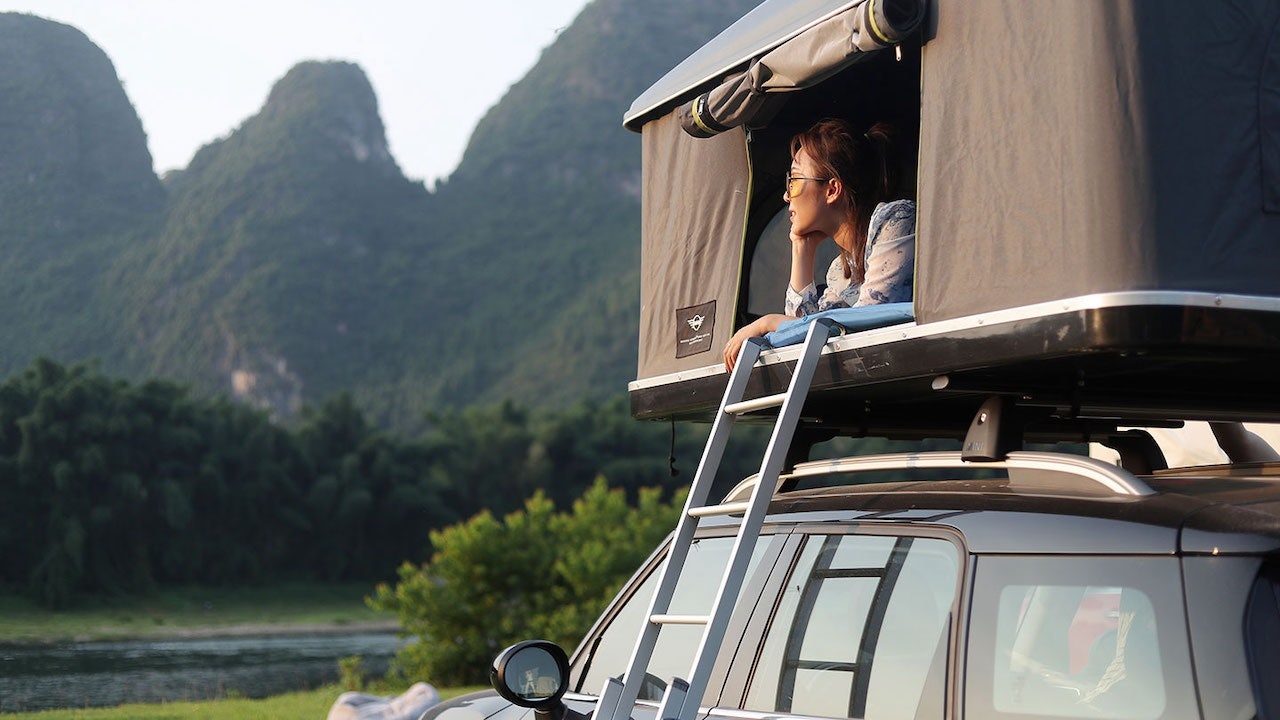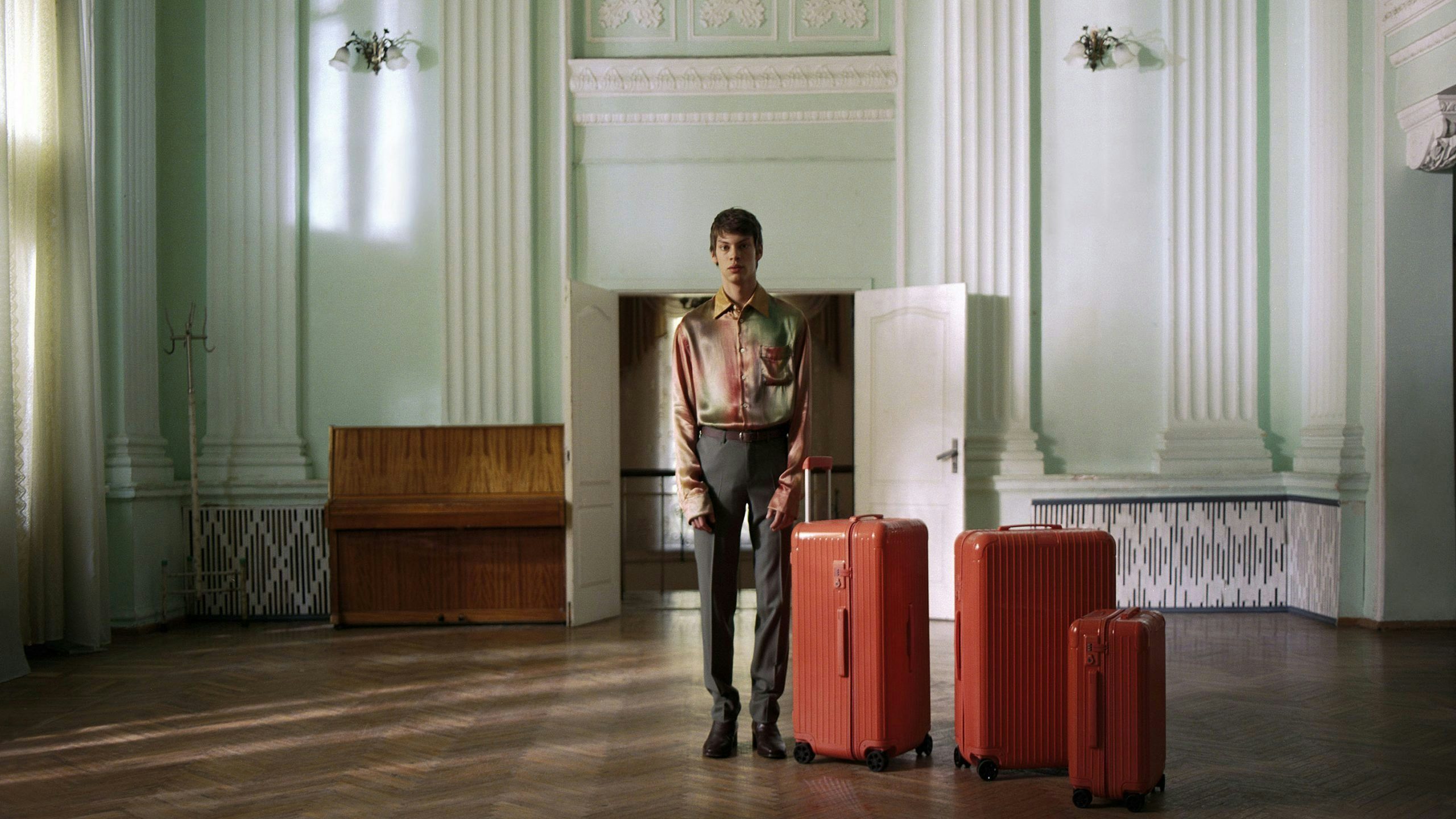Key Takeaways:#
- While relatively small compared to the North American or European markets, China’s RV industry is growing by leaps and bounds, powered by younger consumers eager to escape the city.
- Luxury brands like Gucci and Loewe are creating new collections, collaborations, and content around getting back to nature.
- Recent film and television content centering on enjoying the comforts of home while glamping or traversing the countryside in an RV is proving popular with young viewers.
Along with the e-commerce livestreaming boom, the exponential growth of brand collaborations and swelling brand-funded film and TV budgets, marketing strategies that fuse content and commerce are increasingly fostering new trends in China, offering a glimpse of what may come next globally.
A good example of this is the rising interest in glamping and RVing in China, a trend that connects to two key developments in the market: the steady growth of China’s recreational vehicle industry and the focus on domestic travel and “slow living” in the wake of the Covid-19 pandemic. (Which has been keeping millions of Chinese citizens who would otherwise jet off to global destinations closer to home.)
While RV travel in China is decades behind established markets in North America, Europe and Japan, the domestic industry is catching up quickly, with hundreds of new local companies aiming to meet the growing demand. According to Chinese credit agency Qichacha, more than 1,200 new RV companies were established in China in the first half of 2020, an increase of 36 percent year-on-year, with 849 set up between March and June alone.
Coming on the heels of last year’s extended lockdowns, millions of Chinese were drawn to the option of exploring the country solo in rented or owned RVs, or through self-driving trips organized by travel sites like Qunar. While still small compared to the United States and Western Europe, China’s RV market is expected to see RMB 13.6 billion (2.1 billion) in sales by 2023, up from virtually nothing 20 years ago.
But unlike in years past, when RV travelers in China mostly took long-distance domestic trips, the trend is now to visit nearby parks and destinations, fueled by younger travelers new to the RV lifestyle and inspired by a boom in related content on Chinese TV and video streaming platforms.
Over the past year, the rise of “slow living,” single-living, and “homebody lifestyle” content, reflected in streaming programs like iQiyi’s “I Want to Live Like This” (我要这样生活) and Youku’s “Not a Loner” (看我的生活), has been impossible to ignore. For producers and brands alike, content centering on enjoying the comforts of home while glamping or traversing the countryside in an RV has proven popular.
Last March, Mini leveraged interest in glamping, RVing, and “cloud living” by launching a 24-hour livestream on Bilibili in partnership with Tmall from Mini’s “Nomad Hotel,” a set of six customized Countryman vehicles dispatched to Yunnan Province in southwest China, equipped with rooftop tents and set up with an outdoor barbecue area, dining tables and bathroom facilities. Since its debut in 2019, the Nomad Hotel has expanded to another location in Yunnan and one in Anhui Province in eastern China.
In another effort to tie its brand to China’s travel and camping trends, last year Mini also partnered with production company Xinshixiang to produce “Two Days Away” (出逃两日又如何), a branded travel documentary series that aired on Tencent Video.
This year, we very well could be on the cusp of a camping and RVing content boom, with the recent debuts of Zhejiang Satellite TV’s “Star Chaser” (追星星的人) and iQiyi’s “I Told the Spring About You” (春日酱). For “Star Chaser,” Zhejiang TV assembled a cast of young celebrities including L'Oréal brand ambassador Zhu Yilong and noted Lamborghini crasher Li Yifeng for a camping-themed reality show that sees a rotating set of guests join the hosts as they visit six scenic spots around China. “I Told the Spring About You” takes a slightly different and more youthful route, with iQiyi combining the camping reality TV trend with the similarly popular food TV trend and sending five Gen Z stars (Fei Qiming, Yao Chi, Niu Chao, Hu Chunyang, and Li Mingde) around China to experience the sights and tastes of the country al fresco.
According to the Gen Z-focused 2021 Spring and Summer Season Fashion Report from Bilibili, Tmall and Alimama (Alibaba’s online marketing technology) the Chinese experience with lockdowns and social distancing have encouraged young people to get closer to nature. This trend has arguably taken hold globally, and brands have been quick to capitalize -- Gucci’s recent collaboration with The North Face and the ongoing gorpcore craze spring to mind. In China, this trend has driven the surge in interest in camping in general and glamping in particular, with views of camping-related content on Bilibili increasing 160 percent year-over-year, and the platform has become a popular place for Gen Z to share their camping experiences and tips.
Now, we can expect to see a wide range of services springing up to meet this demand for camping, and glamping and RV travel, and a corresponding increase in brand attention to promoting outdoor lifestyles through content.


